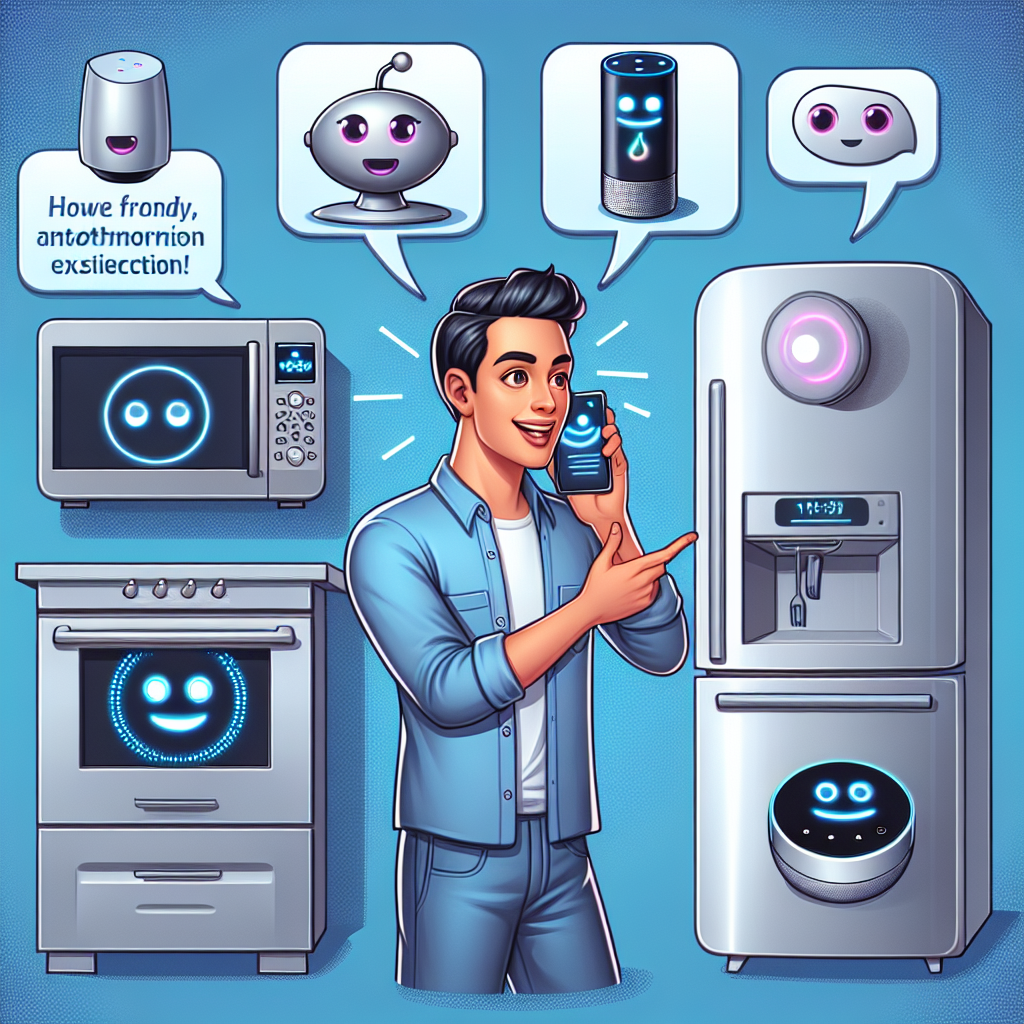Remember when building software was something only tech experts could do? Those days are rapidly fading into the past. AI SaaS creation platforms are revolutionizing our work environments, bringing powerful automation capabilities to everyone—not just developers. These platforms are transforming industries across the board, from small businesses to large enterprises, by making sophisticated AI applications accessible to all.
According to recent research by Gartner, by 2025, a whopping 70% of new applications will rely on low-code or no-code tools—nearly tripling the development rate since 2020. This explosive growth highlights how AI SaaS creation platforms are becoming essential tools in our professional toolkit.
But what exactly is driving this shift, and how will it affect your business? Let’s explore five key automation trends powered by AI SaaS creation platforms that are reshaping the way we work.
In this article, we’ll explore five game-changing automation trends powered by AI SaaS creation platforms that are fundamentally transforming how we work.
The Rise of Intelligent AI Integration in SaaS Applications
The first major trend we’re seeing is the deep integration of artificial intelligence into SaaS applications. Today’s platforms don’t just offer static software—they provide smart applications that learn, adapt, and anticipate your needs.
Modern AI SaaS creation platforms can analyze user behavior patterns and automatically adjust their functionality to match your workflow. For example, if you consistently perform certain tasks in sequence, these intelligent systems will begin to suggest—or even automatically implement—those sequences for you.
“Users now expect AI-powered features such as predictive analytics, intelligent automation, and personalized recommendations,” notes a recent industry report. This shift in expectations is pushing SaaS providers to embed increasingly sophisticated AI capabilities into their platforms.
For small businesses and individual entrepreneurs, this means having access to tools that previously required enterprise-level budgets. A solo business owner can now leverage predictive analytics to forecast sales trends or use automated customer service tools that understand natural language.
Zygote.AI exemplifies this trend by focusing on building intelligent AI applications that adapt to specific business needs. Their platform allows users to create custom AI solutions that grow smarter over time, learning from interactions and improving their performance automatically.
Democratization Through Low-Code Platforms
Perhaps the most transformative trend in the AI SaaS space is the rise of low-code platforms. These user-friendly environments allow people with limited technical backgrounds to build sophisticated AI applications through visual interfaces rather than complex coding.
The implications are enormous: small team companies can now develop custom solutions without hiring expensive development teams. Individual entrepreneurs can turn their unique ideas into functioning software without learning programming languages. Software engineers can drastically accelerate their development timelines by using pre-built components for common functions.
A marketing manager at a small business shared: “I built our entire customer onboarding system using a low-code AI platform in just two weeks. Previously, we were told this would take months and cost tens of thousands of dollars to develop.”
Low-code AI application development is particularly powerful because it combines simplicity with sophistication. These platforms offer drag-and-drop interfaces for building workflows while handling the complex AI integration behind the scenes. The result is custom software that harnesses cutting-edge technology without requiring users to understand the underlying algorithms.
Zygote.AI’s low-code platform embodies this philosophy by enabling anyone to bring their ideas to life, regardless of their technical expertise. Their visual workflow builder makes it easy to create complex AI-powered applications through an intuitive interface, democratizing access to AI technology.
Intelligent Collaboration Tools Enhancing Team Productivity
The third major trend involves intelligent collaboration tools that are revolutionizing how teams work together. These tools go far beyond basic file sharing to create truly integrated work environments.
Modern collaboration platforms powered by AI can:
- Automatically assign tasks based on team members’ skills and availability
- Provide real-time translation for global teams
- Suggest improvements to documents or presentations
- Identify potential scheduling conflicts before they happen
- Generate meeting summaries and action items
A study by McKinsey found that teams using AI-enhanced collaboration tools reported a 35% increase in productivity compared to those using traditional collaboration software. This dramatic improvement comes from reducing the “friction” in teamwork—those small delays and miscommunications that collectively waste enormous amounts of time.
For small teams especially, these intelligent collaboration tools mean they can accomplish more with fewer resources. A five-person startup can now manage complex projects that would have required a much larger team just a few years ago.
Zygote.AI recognizes the vital importance of collaboration in today’s work environment. Their platform includes features that enable seamless teamwork, allowing multiple users to collaborate on creating and refining AI applications. This collaborative approach fosters innovation by bringing diverse perspectives together in a frictionless environment.
Customizable AI Digital Workers for Specific Business Processes
The fourth trend that’s reshaping our work landscape is the emergence of customizable AI digital workers. These aren’t generic chatbots or simple automation scripts—they’re sophisticated virtual assistants designed to handle specific business processes from end to end.
Consider these examples:
- A customized AI digital worker that manages the entire accounts payable process, from receiving invoices to issuing payments
- A digital assistant that handles customer support inquiries, only escalating issues it can’t resolve
- An AI worker that monitors inventory levels and automatically places orders when supplies run low
What makes these digital workers truly revolutionary is their customizability. Businesses aren’t limited to off-the-shelf solutions that only partially meet their needs. Instead, they can create AI workers tailored to their exact processes.
“We created a digital worker that handles our entire content creation workflow,” explains the founder of a digital marketing agency. “It drafts social media posts, generates images, schedules publication, and even analyzes performance—all with minimal human oversight.”
This trend is particularly valuable for tasks that are:
- Repetitive and time-consuming
- Rule-based but complex
- Require consistent accuracy
- Need to be performed outside regular business hours
By deploying these customizable AI digital workers, companies can free their human employees to focus on creative, strategic work that truly requires human judgment.
Zygote.AI’s platform excels in this area by offering highly customizable AI digital workers that can be tailored to specific industry needs. Their vision of achieving fully automated workflows that require no human intervention aligns perfectly with this trend, as demonstrated by their development of autonomous systems that can select topics, write content, generate illustrations, review, and publish articles without human input.
Personal Use AI Products for Everyday Tasks
The fifth significant trend is the growing market for personal use AI products. These tools bring the power of automation into our everyday lives, handling both personal and professional tasks with increasing sophistication.
While business applications of AI often get the spotlight, personal use AI products are quietly transforming how individuals manage their daily responsibilities. These include:
- AI assistants that help manage personal finances
- Smart scheduling tools that optimize your calendar
- Writing assistants that help craft emails and documents
- Learning platforms that adapt to your educational needs
- Health and wellness applications that provide personalized recommendations
What makes this trend particularly interesting is how it blurs the line between personal and professional tools. Many people first experience the power of AI through personal applications, then bring these expectations to their workplace.
A survey by PwC found that 67% of consumers now use some form of AI personal assistant, and 80% of those users report significant time savings as a result. This widespread adoption is creating a generation of workers who expect similar levels of automation in their professional lives.
Zygote.AI recognizes this trend by designing their platform to support both personal and professional use cases. Their philosophy of empowering everyone to create AI applications means individuals can develop solutions for their unique needs, whether that’s managing a household budget or planning a personal project.
Monetization Through Sharing and Selling AI Products
As AI SaaS creation platforms become more accessible, we’re seeing an exciting new trend emerge: the ability for users to monetize their creations by sharing and selling AI products.
This creates a virtuous cycle of innovation. Individuals and small teams who identify niche needs can quickly develop solutions and then monetize them through marketplaces. This provides additional revenue streams while also expanding the ecosystem of available AI tools.
“I created an AI application to help freelance designers manage their client workflow,” explains a solo entrepreneur. “What started as a solution to my own problem now generates $5,000 monthly in subscription revenue from other freelancers facing the same challenges.”
This trend democratizes not just the creation of AI applications but also their distribution and monetization. Someone with domain expertise in a particular industry can now:
1. Identify a specific workflow challenge
2. Create a customized AI solution using low-code tools
3. Package it as a product
4. Sell it to others in the same industry
Zygote.AI embraces this trend by building an open marketplace where users can share and sell their AI SaaS products. This approach promotes continuous innovation and growth while allowing creators to benefit financially from their solutions.
The Power of AI Agent Technology
At the heart of many of these trends is AI agent technology—sophisticated software that can make decisions and take actions autonomously. These agents go beyond simple automation to bring proactive problem-solving capabilities to SaaS platforms.
AI agents can:
- Monitor systems for potential issues
- Make decisions based on complex criteria
- Adapt to changing conditions
- Learn from their successes and failures
- Communicate with both humans and other AI systems
This technology is revolutionary because it shifts the paradigm from reactive to proactive software. Rather than waiting for human instructions, AI agents can anticipate needs and take appropriate action.
For example, an AI agent might notice that a marketing campaign is underperforming, analyze the possible reasons, implement adjustments, and then report on the improvements—all without human intervention.
Zygote.AI’s focus on AI agent technology aligns with their ultimate goal of creating fully automated workflows. Their platform enables the development of sophisticated agents that can handle complex tasks autonomously, freeing humans from repetitive work.
The Future: User-Friendly AI and Workflow Automation
Looking ahead, the future of work will be shaped by increasingly user-friendly AI tools that require minimal training. The emphasis will be on creating intuitive interfaces that hide complexity while delivering powerful capabilities.
This accessibility will accelerate the adoption of workflow automation across industries, from healthcare to manufacturing to professional services. As AI SaaS creation platforms become more sophisticated yet easier to use, we’ll see automation extending into areas previously thought to require human judgment.
The most successful platforms will be those that balance power with usability—offering advanced capabilities while maintaining an approachable interface that non-technical users can master quickly.
Zygote.AI is positioned at the forefront of this trend with their vision of making creation accessible to all. Their user-friendly platform empowers people to create sophisticated AI applications without coding skills, enabling them to automate workflows and boost productivity regardless of their technical background.
As we navigate this rapidly evolving landscape, one thing is clear: AI SaaS creation platforms are fundamentally changing how we work. By understanding and embracing these trends, businesses of all sizes can unlock new levels of efficiency, innovation, and competitive advantage in the automated future that’s already taking shape.









